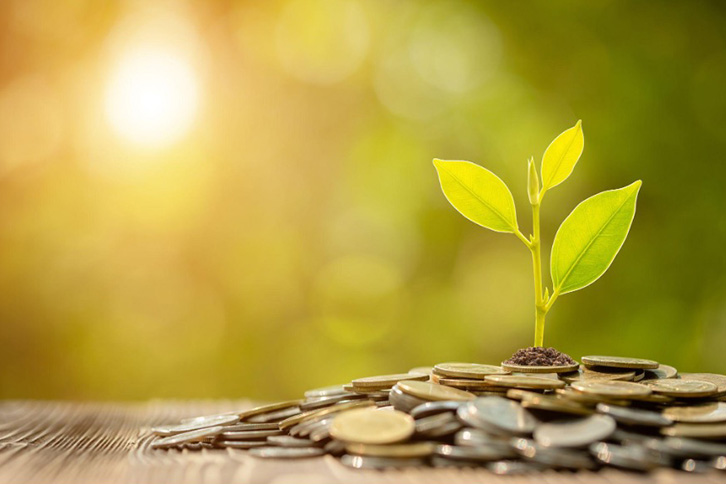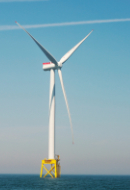Sustainable finance
Our sustainable finance strategy
The Iberdrola Group is committed to sustainable finance as its main instrument for financing projects that benefit our planet, such as renewable facilities or electricity transmission and distribution networks. Discover what green finance is, how it works and the pioneering initiatives we are implementing to have a positive impact on society and the environment.

Update: August 2025

Reading time: 12 minutes

In today's financial landscape, sustainable finance is emerging as a key player in the drive towards a more environmentally friendly society. More and more companies and investors are joining the initiative as a way of backing projects with sustainable criteria that not only generate financial returns, but also have a positive impact on the environment and society. In this context, which reflects a new paradigm in the way we invest, Iberdrola invites you to explore the transformative role of sustainable finance.
What is sustainable finance?
Sustainable finance is a financial approach that seeks to integrate environmental, social and governance elements into business management or investment decision-making. It is a paradigm that goes beyond conventional financial performance, as it prioritises the generation of positive impacts on society and the environment through the channelling of resources.
This term was coined by the European Commission after the adoption of the Paris Agreement in December 2015. According to the European institution, sustainable finance represents a comprehensive vision to address environmental and social challenges and achieve the goals of the agreement in a responsible manner. In fact, in its strategy to reduce greenhouse gas emissions, it establishes the need to redirect capital flows as a way of financing sustainable growth.
To achieve what is proposed, there are various financial tools, but one of the best known is green bonds. These are instruments that are issued for the specific purpose of financing or refinancing projects with environmental benefits, such as renewable energy installations, expansion and digitalisation of electricity transmission and distribution networks, energy efficiency, electric mobility projects or green hydrogen, among other activities. Social bonds or sustainable bonds, in turn, focus on purposes with positive social impact or that address both environmental and social issues.
In addition to bonds, there are also other forms of financial products that are structured with the same aim of supporting projects that integrate specific environmental criteria, such as green loans or sustainable credit lines. However, in order to understand how this set of financing options work effectively and ethically, it is crucial to know how the main sustainability factors are structured.

Green finance
Iberdrola, a benchmark in sustainable financing.

Green bonds
What are green bonds and what are they for
Sustainability factors
Sustainable financing also involves adopting sustainable criteria in the assessment of financial risks and opportunities. These criteria often fall into three key categories:
The integration of criteria relating to these three areas into financial and business decision-making seeks to ensure that financing is socially responsible, environmentally sustainable and ethically managed by governance mechanisms, with the aim of contributing to long-term sustainable development. At Iberdrola, we have been incorporating these factors into our business strategy for decades, and they are now one of our key pillars for growth.
The Iberdrola Group's sustainable financing
(in millions of euros)

60,053 Total sustainable portfolio
- Green bonds 22,895
- Sustainable
credit lines 15,570 - Sustainable commercial paper 6,000
- Green
multilateral loans 5,473 - Green loans Development Bank 3,932
- Green structured finance 4,186
- Sustainable bank
loans 1,725 - Green
bank loan 272
*Data as at the end of 2024
-
94% of financing signed in 2024 is sustainable
-
Iberdrola remains the largest green
bond issuer in the world
 SEE INFOGRAPHIC: The Iberdrola Group's sustainable financing [PDF]
SEE INFOGRAPHIC: The Iberdrola Group's sustainable financing [PDF]
Iberdrola's contribution to sustainable development
Iberdrola is positioned as one of the world's leading companies in green finance. Its business model based on fundamental principles such as responsibility, rigour, transparency and care for the environment sets a standard for sustainability in the energy industry. And this approach not only consolidates the company's position in the financial arena, but also demonstrates its strong commitment to creating sustainable development in the world.
Over the past two decades, and in anticipation of the energy transition, the Group has been dedicated to developing sustainable solutions to support the increasing electrification of the global economy: from the implementation of clean energy to the deployment of smarter grids. In this context, sustainable financing has become a powerful tool that Iberdrola uses to develop its investment plan, while offering investors the ability to measure their contribution to sustainability.
The data confirm the company's leadership in sustainable finance: the volume of operations at the end of 2024 was already more than €60 billion. Moreover, the projected investment plan has a very high degree of alignment (approximately 90%) with the European Union Taxonomy, one of the fundamental bases of the EU sustainable finance framework.
It is also important to note that the projects to which the resources obtained with this type of investment are allocated comply with the environmental and sustainable development criteria described in Iberdrola's Green Finance Framework. The framework is aligned with the Green Bond Principles (GBP) established by the International Capital Markets Association (ICMA) and with the Green Loan Principles (GLP) of the Loan Market Association (LMA). This framework has been structured to try to meet, on a best effort basis, the requirements of the EU Green Bond Standard, drafted by the European Commission's Technical Expert Group, and has been adapted to include all elements of the Green Bond Framework.

"As a leading green bond issuer and renewable developer, Iberdrola supports sustainable finance to accelerate the energy transition, as well as any initiative to tackle climate change"
Ignacio Galán
Executive Chairman of the Iberdrola Group
Green bonds awarded to Iberdrola
As one of the leading groups in the area of financial sustainability, Iberdrola maintains its commitment to environmentally-friendly business practices through the issuance of green bonds. It currently has senior and subordinated debt transactions, known as hybrid bonds, which have contributed to the financing of green, socially responsible projects with the least possible environmental impact.
The company issued its first green bond in 2014, becoming the first Spanish company to implement this practice in its business. Since then, it has significantly expanded its financing through this type of sustainable instruments and has carried out multiple issues in various forms, both public and private, carrying out operations from the corporation itself or from its subsidiaries such as AVANGRID or Neoenergia.
In February 2021, it reached a milestone with the largest green hybrid bond issue in history, amounting to €2 billion. The proceeds were used to finance and refinance the Saint-Brieuc and Baltic Eagle offshore wind farms, which will have an installed capacity of 496 MW and 476 MW respectively.
At the end of 2024, Iberdrola remained the world's leading private group in green bond issuance, with a total issuance of €5.795 billion in 2024 and a total value of €26.6 billion. Below, we review some of our latest transactions:
- In October 2024, the closure of a 12-year green bond issuance worth £500 million (approx. €600 million) was announced. The bond will be used to partially finance the East Anglia 2 offshore wind farm in the UK.
- In November 2024, AUD$750 million (approx. €460 million) were issued. The transaction was structured into two tranches of six and 10 years. The funds raised will be used to finance renewable projects (solar and batteries) in Australia.
-
In November 2024, an €800 million green hybrid bond was issued to finance the buyback at par of the hybrid bond of the same amount issued in February 2019.
In March 2025, a five-year, €400 million issuance of green bonds linked to Iberdrola’s share value was carried out.
-
In May 2025, €750 million were issued with a 10-year maturity to finance renewable projects, some already operational and others under construction. With this issuance, Iberdrola becomes the first Spanish company to issue a bond under the EU’s new European Green Bond Standard (EU GBS), and also the first worldwide to issue a bond simultaneously complying with the EU GBS and the Green Bond Principles of the International Capital Market Association (ICMA).











